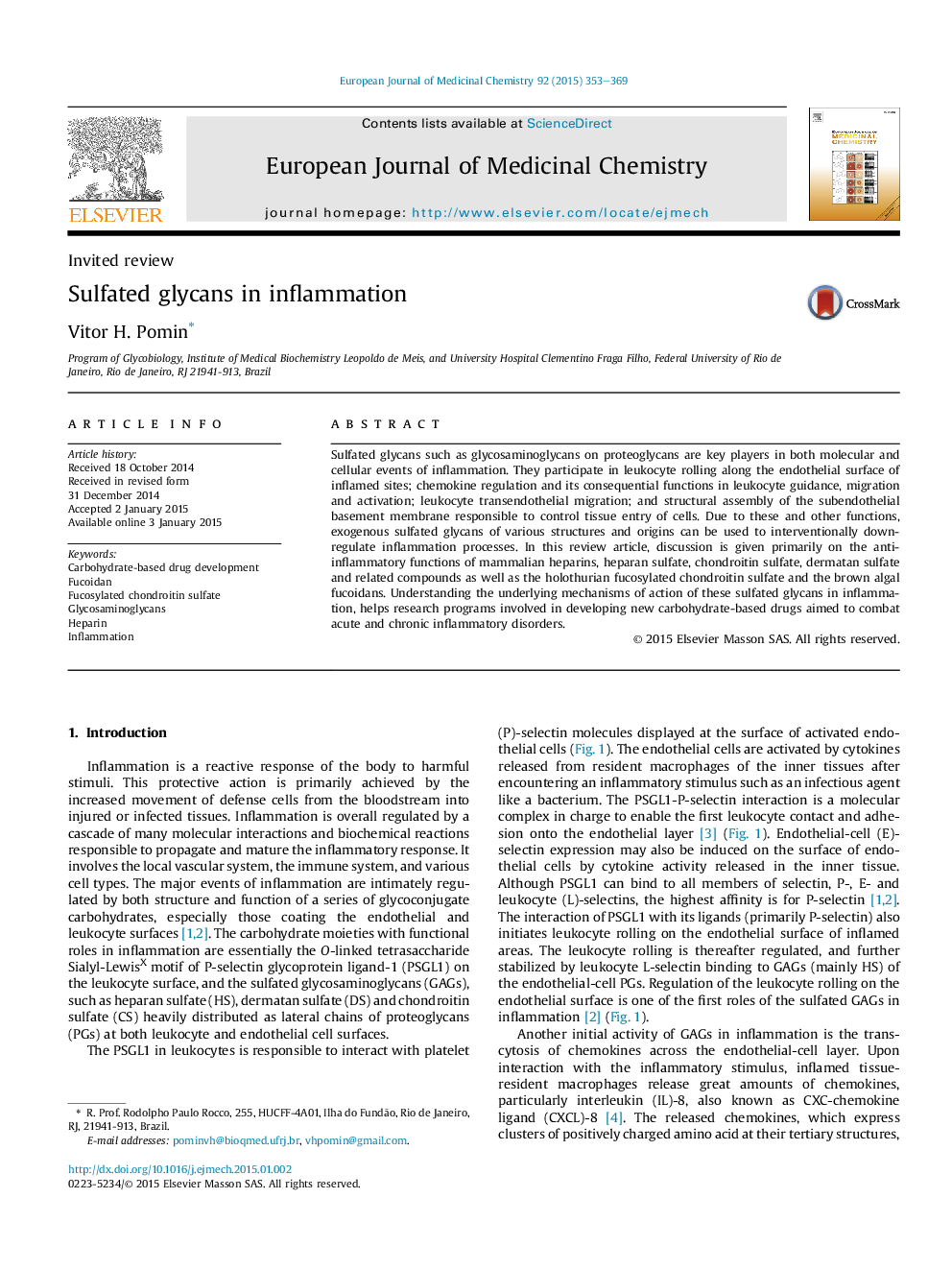| Article ID | Journal | Published Year | Pages | File Type |
|---|---|---|---|---|
| 1393971 | European Journal of Medicinal Chemistry | 2015 | 17 Pages |
•Sulfated glycans play key physiological roles in inflammation.•Exogenous sulfated glycans can be medically used as anti-inflammatories.•Major examples are mammalian and marine glycosaminoglycans and algal fucoidans.•They can block P- and L-selectin-mediated leukocyte migration.•In addition, they can inhibit chemokines and other signaling molecules.
Sulfated glycans such as glycosaminoglycans on proteoglycans are key players in both molecular and cellular events of inflammation. They participate in leukocyte rolling along the endothelial surface of inflamed sites; chemokine regulation and its consequential functions in leukocyte guidance, migration and activation; leukocyte transendothelial migration; and structural assembly of the subendothelial basement membrane responsible to control tissue entry of cells. Due to these and other functions, exogenous sulfated glycans of various structures and origins can be used to interventionally down-regulate inflammation processes. In this review article, discussion is given primarily on the anti-inflammatory functions of mammalian heparins, heparan sulfate, chondroitin sulfate, dermatan sulfate and related compounds as well as the holothurian fucosylated chondroitin sulfate and the brown algal fucoidans. Understanding the underlying mechanisms of action of these sulfated glycans in inflammation, helps research programs involved in developing new carbohydrate-based drugs aimed to combat acute and chronic inflammatory disorders.
Graphical abstractFigure optionsDownload full-size imageDownload as PowerPoint slide
